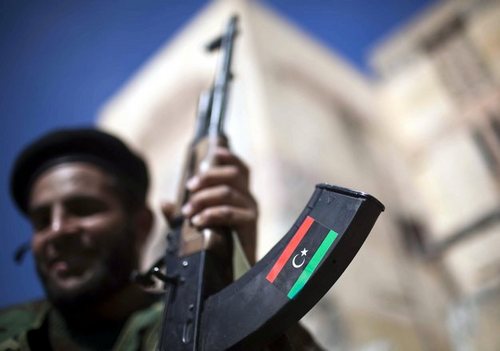
photo - EPA/Gulliem Valle
“It would have been good if he was captured and tried by an international court,” Vladimir Lukin told Russian television, Friday.
"Murder is a horrible and despicable thing, and people who effectively watched Gaddafi's murder live on television may have had precisely these feelings - although Gaddafi himself is responsible for so much bloodshed," the human rights commissioner said, echoing many who have said that it is regretable that Gaddafi, after being captured alive, had not lived to face justice.
A statement by Poland's Foreign Ministry said yesterday evening: “We wish Colonel Gaddafi had been tried for his crimes before a court in Libya or at The Hague.”
The United Nations and Amnesty International have both called for an investigation into the circumstances of Gaddafi's death.
The National Transitional Council is claiming that the deposed dictator, who ruled Libya with an iron fist for 42 years until his fall this summer, was killed after being captured during a firefight between rebels and loyalists.
"There seems to be four or five different versions of how he died," the Office of the UN High Commissioner for Human Rights said in a statement. "More details are needed to ascertain whether he was killed in the fighting or after his capture."
Historic moment
A Libyan human rights activist has told Polish Radio however that the death of Gaddafi marks a “historic moment” and is “good for all the world.”
“This is the end of Gaddafi and it should be so,” said Ibrahim Al Ali Alkami, lawyer and human rights activist who was a special guest of honour at the annual meeting of the Anna Lindh Euro-Mediterranean Foundation in Krakow, southern Poland, together with representatives of the foreign ministries of the 43 member states of the Union for the Mediterranean.
“He was a cruel dictator who killed many Libyan people. He was supporting terrorism all around the world,” Ibrahim Al Ali Alkami told us.
“Libya was under the Gaddafi regime for more than 40 years,” said Alkami.
“He tried to control everything. He never gave a chance to the youth and the people in general. It was a dictatorial time.
“Some people tried to do something [during that period], but ultimately they were killed or thrown into jail.
“We are very optimistic for a new democratic system in Libya. It will be a free and democratic country.”
Alkami stressed that neighbouring countries had provided the crucial impetus for change in recent months.
“We got a big inspiration from the Arab Spring - with what was happening in Tunisia and Egypt,” he said.
“That's what helped us to launch a revolution.”
He also expressed his hopes that Libya will not be the last country in the region where democracy takes root, as President Barshar al-Assad of Syria continues his brutal crackdown on demonstrators.
“I hope that Barshar will learn from this, because he was a friend of Gaddafi,” he said.
"I hope he will give freedom to the people,” he added. “He has to go.” (pg/nh)